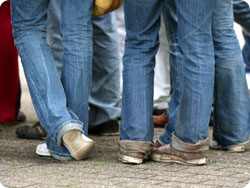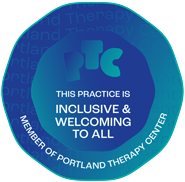 Is your teen withdrawn, depressed or just plain angry?
Is your teen withdrawn, depressed or just plain angry?
Are you worried about school grades or attendance problems?
Do you suspect drug or alcohol use?
We tackle tough problems like these every day, and support parents in addressing their kids’ concerns. Parenting troubled teens can be extremely trying, but you don’t have to live with talking back, ignoring, sarcasm and eye-rolling.
Kids who are stealing, getting suspended, and refusing to do their part in the household are headed in the wrong direction. Help for troubled teens may involve changing some of your own habits, but that doesn’t mean you have to lower your standards or expectations.
Teens in trouble, teenage drug abuse and teenage depression are problems to be taken seriously, and our teen counselor specialists are equipped to help you figure out the level of risk your adolescent is facing. Struggling teens and bipolar teens aren’t going to just grow out of their problems, and you’re right to seek help so that you know you’re doing everything possible to improve your family life.
With the right help, you can see your child happy, healthy and loving again.
Read about counseling we do with families and teenagers, or just contact us to ask for ideas on your particular situation right away.
Our email and phone number is posted at the top of every page of the website or visit the contact us page.
Research on the reality of teens’ lives confirms that parents greatly underestimate their exposure to challenges involving drugs, sexuality, and other serious concerns. We serve as a bridge between your teens and the outside world, to help them navigate tough situations in their social lives and at school.
Teen Behavior Problems
Our services are of course absolutely private and confidential, so we aren’t disclosing actual stories, but the kids we’ve talked with tell us things like this:
-My parents are always on me to get good grades, and they have no idea of the pressure I’m under. I’m trying to keep up with my schoolwork but I can’t sleep at night, and all they do is nag me and yell about the time I spend on Facebook. They don’t realize it’s an important way I talk to my friends. They’re not helping! All it does is make me way more stressed.
-A bunch of girls in my school say they’re bi. I think I am. A lot of girls I know talk about having girlfriends they make out with. I just feel weird saying that I like guys. I’m not sure about any of it.
-Of course I know where to get drugs. You can get weed anyplace near school, and a lot of other stuff too. I’m kind of scared to try it but I probably will eventually- the time to have fun with things like this is when you’re young, right?
-My girlfriend won’t give me oral sex. My friends say if she loved me she would do it. I think I should break up with her, but I really like her a lot and she’s hot.
-I want piercings but my parents keep saying no. I’m piercing myself anyhow, in places they won’t see, because they just don’t realize everyone is doing this. I did my belly button and I’m thinking of doing my nipples, because my friend said it didn’t hurt that much and it looks really rad.
And a typical parent who sought us out:
-My teen and I are bickering over all kinds of things that never used to get to me. I’m worried about what is going on. I know kids start to grow apart from their parents at this time in life, but this is pretty miserable.
Teen behavior problems are wide-ranging, and there’s little we haven’t seen. Our staff are particularly skilled at helping kids speak frankly about their day-to-day experiences, so that they are comfortable confiding in us and letting us know what’s really going on in their lives. Teens with behavior problems still have dreams, hopes and desires; the counselor’s job is to help them identify and work with the ways they can motivate themselves to change their behavior.
Struggling Teens
We don’t leave teenagers to struggle on their own. Our job is to provide them with strategies, resources, communication tools and objective feedback. We involve parents as resource people whenever possible, and we have some specific guidelines about when we need to disclose teens’ information to their parents.
If teenagers are talking about behaviors that concern us and compromise their safety, we help them talk to a parent and make sure an adult knows what activities they are involved in. For example, if a teenager is engaging in unprotected sex, making plans to run away from home or expressing serious suicidal thoughts, parents can rest assured that we will share that information with them so that everyone involved is helping with the issue. Teens who are struggling need to know that everybody is on their side.
Teenage Drug Abuse
Teenagers often need a safe place to talk about their experimentation or use of alcohol and other recreational drugs. As with other safety concerns, our staff balances the need for keeping teenagers’ information private with the need for parents to know about the level of risk in which their child is engaging.
A teenager who is involved in drug or alcohol abuse requires careful and thorough evaluation, so that we can identify the level of use and the reasons behind it.
Teenage Depression Help
Teens who are withdrawn, apathetic, sleep too much, or who are sad all the time can benefit from talk therapy and a variety of other approaches. Teens who need help for signs of depression may be suffering from actual clinical depression or may just have fallen into a set of bad habits.
We would typically help teens with feelings of depression through a combination of talking, asking lots of questions, and suggesting ways they can change their thinking patterns or day-to-day activities and routines such as sleeping and nutrition.
Depression and teens are inseparable in some ways; the nature of adolescence involves some introspection and preoccupation with existential questions, so we help kids sort out their own answers to complicated questions. We may also introduce activities in the session or offer “homework” experiments to try outside the sessions, such as reading, doing exercise, taking classes, or talking about specific topics with friends and family. Teenagers who need help with depression may also be affected by events or behavior patterns in their families; in that case we may work with other family members, or help the teenager change their own responses to improve relationships.
Depressed Teen Girls
Teen girls in particular may benefit from help with depressed feelings by engaging in activities such as writing in a journal, doing artwork, or getting help with peer relationships that are troubling them. Teen girls who become depressed may also have difficulty with assertiveness skills, expressing anger, or maintaining a positive body image.
Our staff has specialized skills in working with the specific developmental challenges of young womanhood and the complexity of social relationships and social pressures among girls.
Counseling Teens
How can we help teens successfully navigate the difficult period of adolescence, when their bodies and minds are changing in rapid and sometimes confusing ways?
You can read more about our approach, or just give us a call or e-mail about your teen’s situation to see how we might be able to help.








